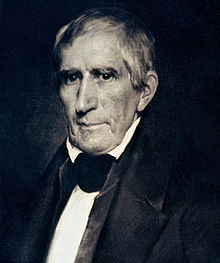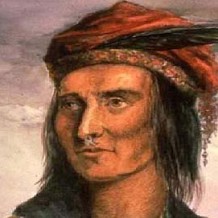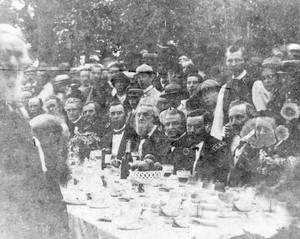Books: “Nixon’s Darkest Secrets”
March 30, 2012
There is a scene in a PBS documentary about Jack Paar that illustrates as well as anything why William Shakespeare would have loved Richard Nixon.
The scene comes from a 1963 episode of Paar’s groundbreaking talk show. Nixon, since leaving the vice presidency, had lost elections for president and for governor of California, but for a two-time loser, he was in a good mood — one might say light-hearted, a term not often associated with RMN.
Paar reminds the audience of something that was widely known at the time, namely that Nixon was a piano player. Paar also explained, to Nixon’s obvious amusement, that Nixon had also written some music for the piano and that his wife had made recordings of him playing his own tunes.
Paar said that bandleader Jose Meles had used one of those recordings to write an arrangement to back up one of Nixon’s compositions, and Paar asked Nixon to take to the keyboard.
Before complying, Nixon noted that Paar had asked earlier about Nixon’s political ambition. “If last November didn’t finish it, this will,” Nixon said, “because — believe me — the Republicans don’t want another piano player in the White House,” a reference to Harry S. Truman whose musical virtuosity was about on the same level as Nixon’s.
When I saw this incident on a PBS documentary about Paar, I thought about what a complex creature a human being is, and I thought about that again when I read Don Fulsom’s book, Nixon’s Darkest Secrets. Considering the depth and breadth of Nixon’s corruption and paranoia, I wouldn’t have thought it possible for a writer to do a hatchet job on the old trickster, but Don Fulsom has managed it.
 On paper, at least, Fulsom has some credentials to be writing about this subject. He covered the White House and was Washington bureau chief for United Press International, which once upon a time was a viable news agency. Having been a journalist myself for more than 40 years, I would have expected a writer with Fulsom’s resumé, producing a book this long after Nixon’s death, to provide some insight into the whole man. As deeply immersed in muck as he was, after all, Nixon didn’t spend his whole time drinking himself blotto, assaulting people who annoyed him, beating his wife, raking in dough through his bag men, or plotting to have people like Jack Anderson killed.
On paper, at least, Fulsom has some credentials to be writing about this subject. He covered the White House and was Washington bureau chief for United Press International, which once upon a time was a viable news agency. Having been a journalist myself for more than 40 years, I would have expected a writer with Fulsom’s resumé, producing a book this long after Nixon’s death, to provide some insight into the whole man. As deeply immersed in muck as he was, after all, Nixon didn’t spend his whole time drinking himself blotto, assaulting people who annoyed him, beating his wife, raking in dough through his bag men, or plotting to have people like Jack Anderson killed.
And while his administration was forever besmirched by his prolongation of the Vietnam war and his order for the secret and murderous bombing of Cambodia, it was productive in many ways, including creation of the Occupational and Health Safety Administration , the National Endowment on the Arts, and the Environmental Protection Agency. Nixon approved the first significant step toward a federal affirmative action program. And Nixon — as probably only he could have — altered the course of modern history by changing the U.S. relationship with the Soviet Union and China.
Although Fulsom has riffled through some of the more recently released documents about Nixon, he hasn’t contributed anything to our understanding by recounting in nauseating detail the depravities of the man’s life. We get it. He was a sleaze. But he was also this other guy. This guy with a remarkable grasp of foreign affairs. This guy who supported a lot of moderate initiatives. And this guy who played the piano. And from this distance, that’s what’s so fascinating about him.
Look for Fulsom’s book with the scandal rags at the checkout counter. Shakespeare would have told the whole story.
You can see Nixon playing the piano on Jack Paar’s show by clicking HERE.
Books: “William Henry Harrison”
January 27, 2012
 United States presidents and baseball players have at least this in common: They can alter the record books just by showing up.
United States presidents and baseball players have at least this in common: They can alter the record books just by showing up.
A case in point is William Henry Harrison, the ninth president and the subject of a book by the same name — one of the Times Books series of short biographies of the presidents. The author is New York Times columnist Gail Collins.
Harrison was in office hardly a month, but he still made his marks. He was the first presidential candidate to personally campaign for the office. He was the last president born before the Declaration of Independence. He gave the longest inaugural address. He was the first president to be photographed while in office. He was the first president to die in office. He was the first president to die in office of natural causes. He served the shortest term — 31 days. He was part of one of two sets of three presidents who served in the same year — 1841 and 1881. He was the only president whose grandson was president.
 As Gail Collins recounts with a lot of good humor, the campaign of 1840, in which the Whig Harrison defeated the incumbent Democrat Martin Van Buren, was a first of its kind, too, in the sense that it was the first really populist election in the United States, the first one that wasn’t dominated by a political and economic elite.
As Gail Collins recounts with a lot of good humor, the campaign of 1840, in which the Whig Harrison defeated the incumbent Democrat Martin Van Buren, was a first of its kind, too, in the sense that it was the first really populist election in the United States, the first one that wasn’t dominated by a political and economic elite.
Harrison had unsuccessfully challenged Van Buren in 1836 when the fractious Whigs ran two candidates — basically a northern and a southern. But in 1840, the party got behind Harrison and he far out paced Van Buren in electoral votes, although the popular vote was much closer. More than 80 percent of the eligible voters participated — a statistic that must be filtered through the fact that women and a great many men did not have the franchise in those days.
As Collins describes it, the Whig campaign was like a three-ring circus, with literally thousands of stump speakers going from town to town, parades, rallies, and dinners with plenty of alcohol.
The campaign was further distinguished by the Whigs’ successful effort to sell the public a candidate whom they could appreciate — a kind of frontiersman, one of the common folks, whose idea of a good time was flopping down in his log cabin and swilling hard cider.
In actual fact, Harrison was born on a Virginia plantation, was well educated and very mannerly, drank only in moderation and disapproved of drunkenness, and lived in a 16-room farmhouse in Ohio.
The 21st century voter may not be surprised to hear that the facts didn’t matter. The public bought the lie, which was encouraged with all kinds of “log cabin” events, images, songs, and verses, and other Whig politicians were happy to let some of the backwoods shading rub off on them.
This was also the campaign of “Tippecanoe and Tyler Too” — the “Tyler” being a reference to vice-presidential candidate John Tyler. Harrison had served in the army before retiring to his farm, and he was involved in several fights with the Indians and British in the struggle over the Northwest Territories. In one of those battles, near the juncture of the Tippecanoe and Wabash rivers in the Indiana Territory, Harrison, who was governor of the territory, routed a settlement being built by the brothers and Shawnee leaders Tecumseh and Tenskwatawa (“the Prophet). Harrison had far more men, and he took far more casualties, and the battle wasn’t really decisive in the long run. He had a couple of much greater successes under his military belt. But, hey, “Tippecanoe and Tyler too” rhymes, and the alliteration was irresistible.
It is well known that Harrison was inaugurated on a bitter winter day, and that he foolishly appeared at the outdoor event — including his two-hour speech — without a hat or coat. Gail Collins explains further that the amiable president-elect arrived in Washington already exhausted from both celebratory events and sieges by office-seekers, and that the pressure didn’t let up in the capital.
The author writes that Harrison was 67 years old when he campaigned for the office, and that the Democrats dismissed him as a feeble old man — not a far-fetched idea in 1840, when a man of that age frequently was in his dotage. Collins says Harrison’s recklessness might have been his attempt to refute the Democrats’ claims. In any case, shortly after the inauguration, he came down with what was probably pneumonia. He died on April 4, 1841.
Books: “Lyndon B. Johnson” by Charles Peters
August 27, 2010
For my own amusement, I keep a file of presidential trivia, but there is one fragment of information about the 36th president that I have chosen to omit: Lyndon Johnson was the only president who conducted staff meetings in his bathroom while he was moving his bowels. The fact that he bullied his staff into participating in this bizarre behavior speaks to one of the worst characteristics of the president. And, I suppose — to the extent that they didn’t have enough personal pride to tell him to go take a whaddyacallit — it speaks to the self image of Johnson’s toadies. He was a coarse, loud-mouthed bully, and that went along nicely with his appetites for alcohol and women.
Johnson, in a few words, was no damned good. That is, he would have been if he hadn’t conducted the most successful domestic policy of any president except Franklin Roosevelt; if he hadn’t used his political brawn and skill to enact such measures as the Elementary and Secondary Education Act and the Voting Rights Act, and if he hadn’t sponsored such programs as Medicare. These contrasting realities about LBJ are described in “Lyndon B. Johnson” by Charles Peters, one of a series of short presidential biographies by Times Books.
 Maybe it has been true of every president including George Washington and Abraham Lincoln that the nation has had to accept the bad with the good sides of a man, but that lesson has hardly been more boldly drawn than it was in the case of Lyndon Johnson.
Maybe it has been true of every president including George Washington and Abraham Lincoln that the nation has had to accept the bad with the good sides of a man, but that lesson has hardly been more boldly drawn than it was in the case of Lyndon Johnson.
Peters, who was a member of the administrations of John F. Kennedy and Johnson, gives plenty of examples of Johnson’s petulance, pettiness, and cruelty, including his weakness for publicly humiliating the people around him. Peters reports instances in which Johnson obfuscated or simply lied, including to the American public, in order to get his way — although LBJ hardly originated that tactic. In fact, Peters describes the scenario in which LBJ, then vice president, was left out of the loop when Robert Kennedy secretly agreed to the withdrawal of American missiles from Turkey as a quid pro quo for the withdrawal of Soviet missiles from Cuba. LBJ succeeded to the presidency and pursued what turned out to be a very aggressive policy against North Vietnam and the Viet Cong without knowing how the missile crisis had been resolved.
 Johnson was an extraordinarily ambitious man, and he never made decisions without weighing the political consequences for himself. For instance, he abhorred the idea that he would be cast as a weakling if he publicly vacillated from a determination to prevent the fall of South Vietnam — even while he seriously doubted that the war could be won and made several efforts to achieve a negotiated peace.
Johnson was an extraordinarily ambitious man, and he never made decisions without weighing the political consequences for himself. For instance, he abhorred the idea that he would be cast as a weakling if he publicly vacillated from a determination to prevent the fall of South Vietnam — even while he seriously doubted that the war could be won and made several efforts to achieve a negotiated peace.
The war — or, at least, the way the war was perceived by much of the American public by 1968 — was Johnson’s undoing. People may forget about Johnson showing off his surgical scar, using an aide’s lap as a footrest, lifting his hound by its ears, or even pursuing one sexual affair after another. However, as Peters notes, the bloodshed and the divisiveness and LBJ’s unprecedented decision to decline to run for reelection will always be associated with his memory.
Still, this unlikeable man took a courageous stand during a time of great uncertainty in the country and doggedly promoted his programs to help the poor, to assure medical care for the elderly, to assist students, and to finally bring true political equality to black Americans. Historians can spend eternity speculating whether all of that could have been achieved in the America of the 1960s without an SOB of Shakespearean proportions in the White House.

















